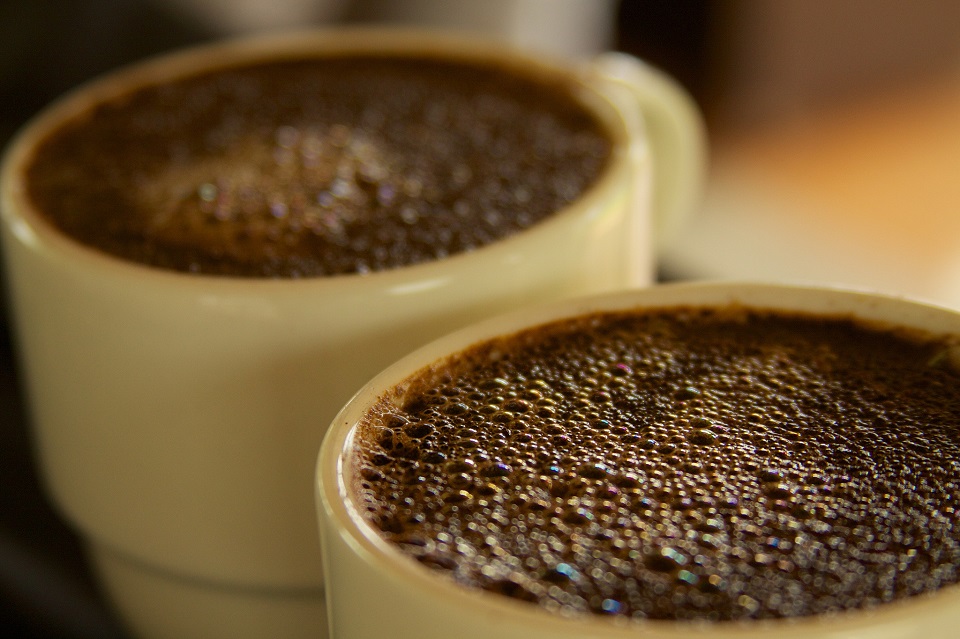
It has previously been shown on that there is an inverse relationship between caffeine and skin cancer (see references below article). That caffeine can actually act to help protect against skin cancer.
Now a new study Increased Caffeine Intake Is Associated with Reduced Risk of Basal Cell Carcinoma of the Skin offers even more compelling evidence. The study shows that drinking coffee can help keep the most common type of skin cancer away.
The researchers from Harvard University performed a prospective analysis of data from 112,897 participants from the Nurses’ Health Study and the Health Professionals Follow-up Study.
The researchers observed an inverse association between coffee consumption and the risk of Basal cell carcinoma (BCC). Furthermore, there was an inverse association between caffeine intake from all dietary sources (coffee, tea, cola, and chocolate) and the risk of BCC. Consumption of decaffeinated coffee was not associated with a decreased risk of BCC.
Studies in animals suggest that caffeine administration helps prevent squamous cell skin cancer development, but there have been limited epidemiologic studies on the association between caffeine consumption and skin cancer risk. Using data from the Nurses’ Health Study and the Health Professionals Follow-up Study, we prospectively examined risks of basal cell carcinoma (BCC, 22,786 cases), squamous cell carcinoma (SCC, 1,953 cases), and melanoma (741 cases) in relation to caffeine intake. Cox proportional hazard models were used to calculate relative risks (RR) and 95% confidence intervals (CI). The amount of caffeine intake from all dietary sources was inversely associated with BCC risk. Compared with the lowest quintile, the highest quintile had the lowest risk (RR, 0.82 in women; 95% CI:,0.77–0.86 and RR, 0.87 in men; 95% CI, 0.81–0.94; Ptrend < 0.0001 in both). A significant inverse association was also found between caffeinated coffee consumption and BCC risk. Compared with individuals who consumed caffeinated coffee less than 1 cup per month, women who consumed more than 3 cups/d had the lowest risk (RR, 0.79; 95% CI, 0.74–0.85; Ptrend < 0.0001) and the RR for men was 0.90 (95% CI, 0.80–1.01; Ptrend = 0.003). Caffeine from other dietary sources (tea, cola, and chocolate) was also inversely associated with BCC risk. Decaffeinated coffee consumption was not associated with a similar decrease in BCC risk. In contrast, caffeine intake was not found to be inversely associated with risks of SCC or melanoma. Our findings argue that caffeine intake in men and women is inversely associated with risk of BCC.
____________________________________
Cancer Res. 2012 Jul 1;72(13):3282-9. Increased caffeine intake is associated with reduced risk of Basal cell carcinoma of the skin.
ATR-Chk1 pathway inhibition promotes apoptosis after UV treatment in primary human keratinocytes: potential basis for the UV protective effects of caffeine.
Caffeine decreases phospho-Chk1 (Ser317) and increases mitotic cells with cyclin B1 and caspase 3 in tumors from UVB-treated mice.
__________________






















